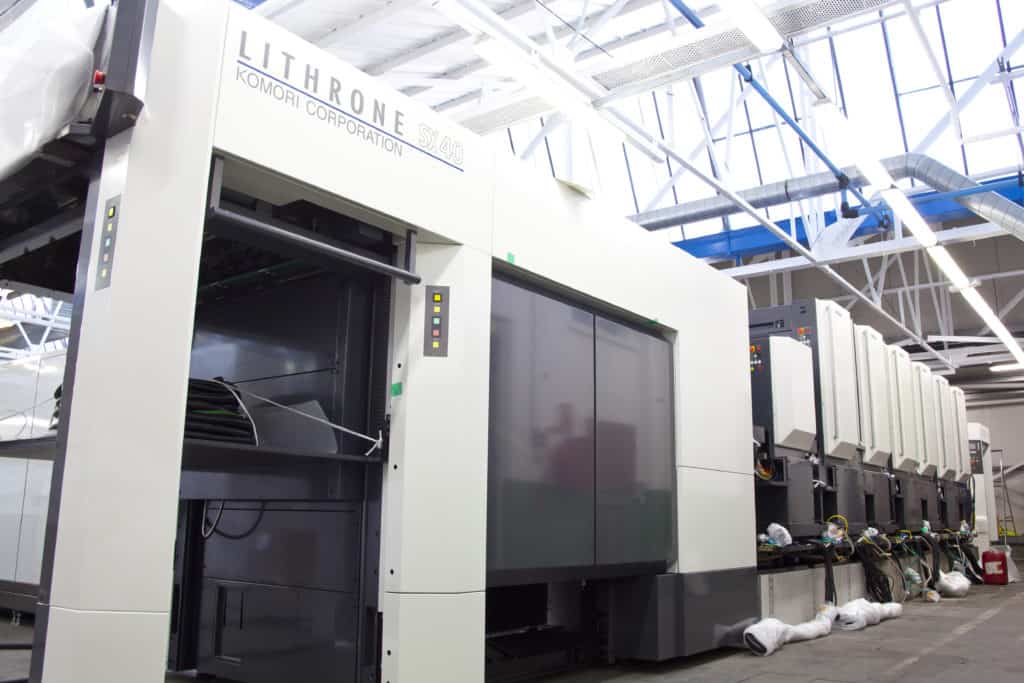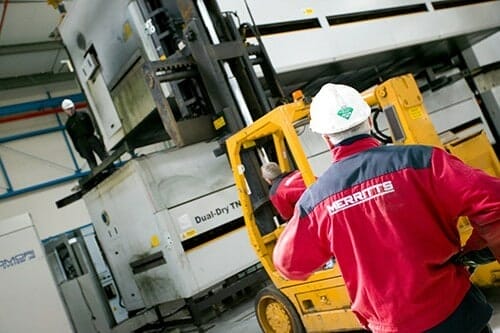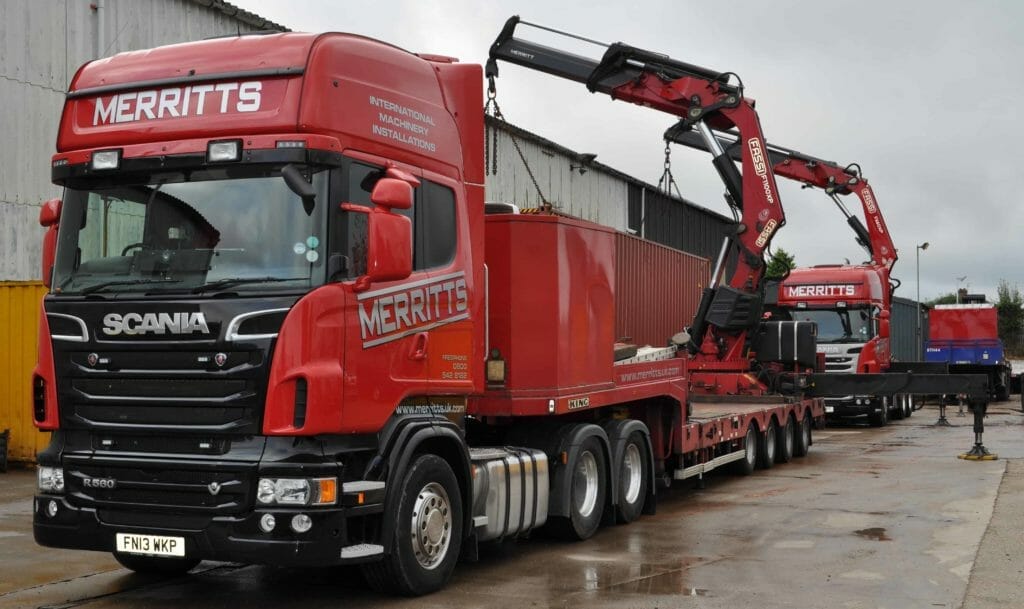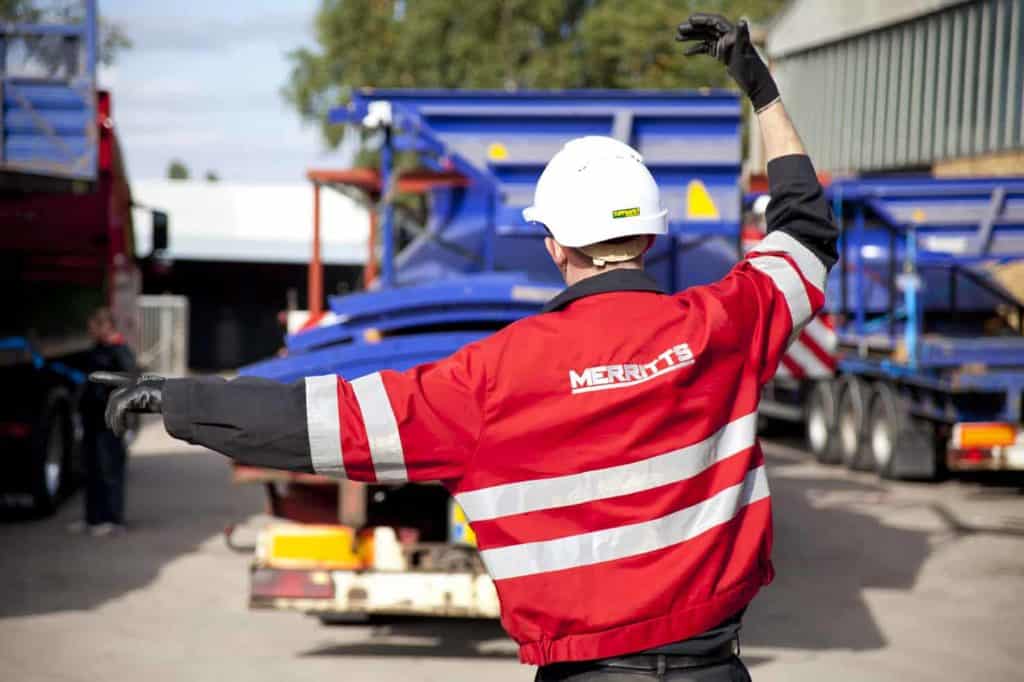Call FREE: 0800 046 9840
Email us: enquiries@merritts.uk.com


The dust has settled on Brexit, the UK has left the EU and the period of transition has started during which the Government has until 31 December 2020 to negotiate trade agreements and set standards.
In this article we reflect on Brexit and how it might affect heavy machinery moves for companies planning to relocate factories or buy new machinery within the next 11 months.

Two weeks into the new era, and we have already seen a flurry of new instructions from companies, presumably as they seek to complete their machinery moving projects before anything really changes.
Whatever date you choose to carry out your project, the following are the main areas to consider related to heavy machinery moving:
- Tariffs and duties
- Health & safety legislation
- Transport costs and border delays
- Asset registers
Factory relocations – UK
If your factory relocation is within the UK and you are not buying or importing new machinery, very little should change as you will already own the asset. You will be able to carry out your project in adherence with current UK health and safety regulations without considering any tariffs or duties.
Factory relocations – From EU and rest of the world to UK
If your relocation is from the EU or the rest of the world to the UK and you already own the machinery being transferred you should be able to relocate the equipment, having completed all the relevant customs and shipping documentation.
If you do not own the machinery, you may need to speak to your finance director and/or finance company to discuss how the asset will be transferred and to consider if any duties will be payable. Once these factors are determined, the machinery can be transported, having completed all the relevant customs and shipping documentation. You will need to comply with H&S legislation in all the countries where road transportation, machinery removal and machinery installation works are taking place.
In summary, for factory relocations, there will be negligible impact on the actual machine moving project. However, the choice of location and the factors driving the relocation of manufacturing may be driven by other economic factors related to Brexit.
Buying new machinery
If you are buying from a UK based machine manufacturer, distributor or machinery re-seller, very little should change, albeit economic factors may impact negotiations on price.
If you are importing machines from manufacturers based in the EU or rest of the world you will need to fully understand the duties that will be payable as part of your purchase negotiations. This is when exchange rates and the time of the purchase will be hugely influential in the decision.
HMRC Bonded Warehousing
Depending on economic forecasts, we anticipate that demand for our HMRC approved bonded warehousing facilities will increase as companies seek to bring forward new machinery investment plans in order to capitalise on deals being offered by manufacturers.
Purchasing a machine in advance may mean the location where it will be installed is not ready for its arrival. Using a temporary industrial storage facility is an ideal way to purchase machinery in order to take advantage of a deal, yet still manage the timing of customs duties in line with cashflow.
Machine maintenance
When a used machinery is being moved, this can be an ideal time to carry out maintenance as all aspects of the machine can be accessed. As part of our heavy machinery moving package, we can provide machine lifting equipment so that maintenance can be carried out on-site prior to removal or installation. Alternatively, we can arrange for the machine to be transported to our industrial storage facility which is fully equipped to enable engineers to carry out maintenance and inspections.
Health & Safety Legislation
The UK has very strict standards which are enforced by the Health & Safety Executive and we do not foresee any dramatic changes in legislation that will be applied within the UK. We will be keeping a close eye on developments in this area as negotiations with the EU evolve and will issue updates if any future changes will impact heavy machinery moving projects.
Machinery Asset registers
Most companies will maintain a register of assets. This will need updating.
Transportation & Borders
For the next 11 months, we anticipate minimal change. However, if your project is due to take place after 1 January 2021, detailed consideration should be given to transportation routes via roads to understand the impact of border controls, as well as any delays that may arise at the point of entry to the UK.
Planning your next heavy machinery move project?
If you are considering a heavy machinery movement project and would like advice, the Merritts team will be happy to help. With nearly 100 years of experience, we have the specialist equipment and knowledge to deal with any machinery moving scenario.



